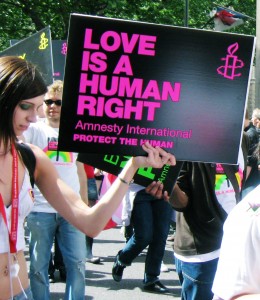 A Supreme Court bench consisting of justices G S Singhvi and S J Mukhopadhaya overruled the 2009 decision of the Delhi High Court to decriminalise sexual relations between persons of the same sex on December 11. The grounds stated by the bench claimed that it had to uphold the validity of Section 377 of the Indian Penal Code which makes anal sex a punishable offence.
A Supreme Court bench consisting of justices G S Singhvi and S J Mukhopadhaya overruled the 2009 decision of the Delhi High Court to decriminalise sexual relations between persons of the same sex on December 11. The grounds stated by the bench claimed that it had to uphold the validity of Section 377 of the Indian Penal Code which makes anal sex a punishable offence.
The Delhi High Court had ruled on July 2, 2009 that sexual relations between two consenting adults in private would not be an offence and had thus decriminalised gay sex. However, the Supreme Court stated the court was not in a position to legalise such a sexual relation since it has the responsibility to uphold the provisions of the Indian Penal Code.
In a statement requesting the decriminalisation of gay sex, the Centre told the court that the anti-gay law in India was a result of rules made during British colonialism and Indian society was in fact tolerant towards homosexuality. The Supreme Court, in its ruling, stated that only the Parliament has the authority to remove or amend Section 377 of the IPC. The court criticised the Centre for its casual approach towards the issue of decriminalisation of homosexuality and for not taking into account such an important matter instead of blaming the judiciary for its decision.
The petition to decriminalise gay sex was filed in the high court by the NGO Naz Foundation. In their petition, they demanded that homosexuality be decriminalised and the 1861 legislation be changed which upholds gay sex an offence because of section 377.
After the high court’s decision to decriminalise gay sex, a challenge was made by late BJP leader B P Singhal stating that such acts are illegal, immoral and against the ethos of Indian culture. Challenges were also made by religious organisations like All India Muslim Personal Law Board, Utkal Christian Council and Apostolic Churches Alliance.
On the verdict of the Supreme Court, several LGBT activists broke down in the courtroom. The senior advocate arguing the case for the Naz Foundation stated that the judgement was not correct in law and they would move to take appropriate legal recourse.




























